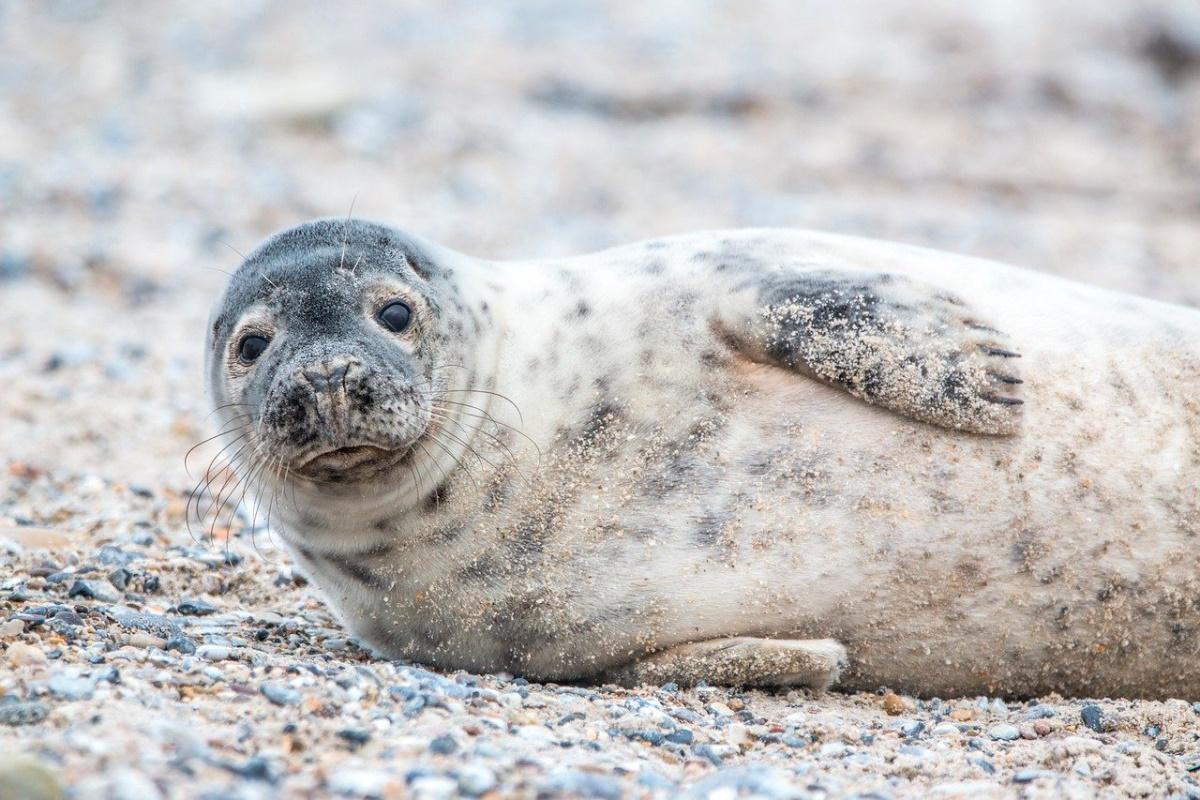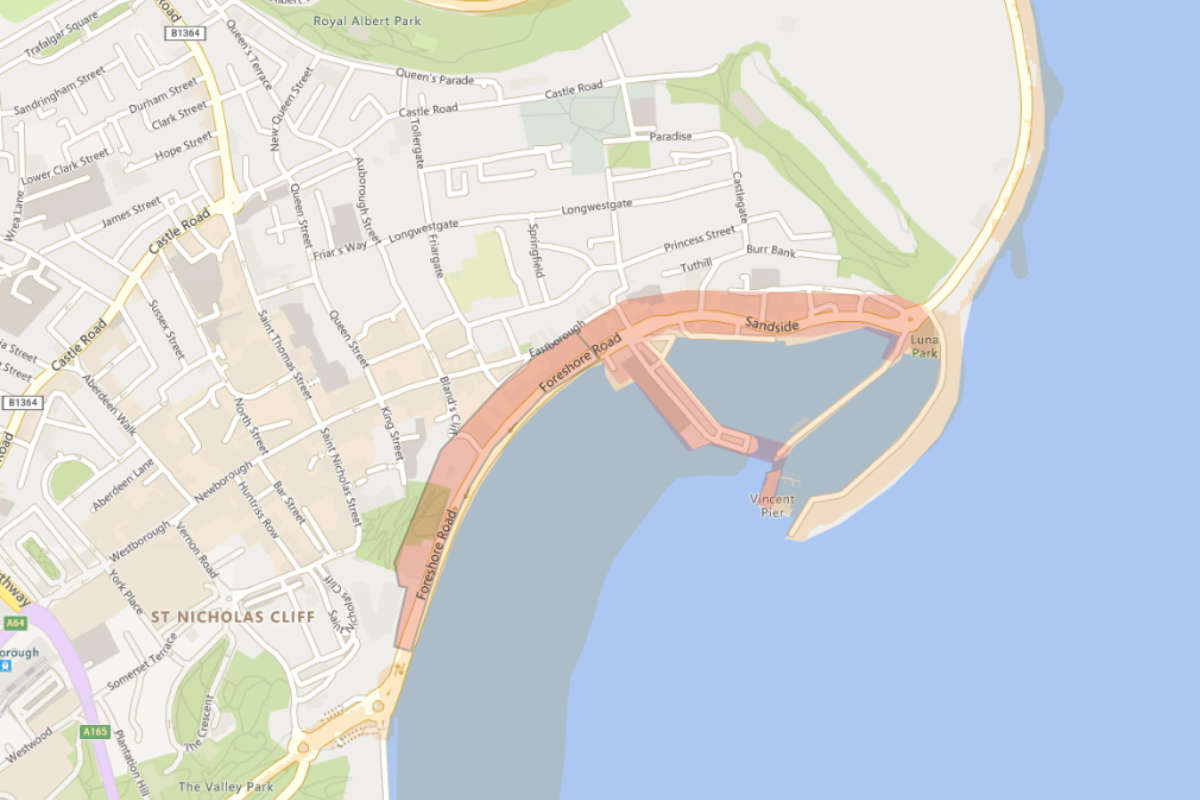
Marine animal rescue organisations are seeing a consistent increase in callouts, particularly for seals, on the Yorkshire Coast, prompting renewed efforts to educate the public on how to respond when encountering these marine mammals.
British Divers Marine Life Rescue (BDMLR), a charity formed in 1988 in response to a mass mortality of common seals, says that the number of call out's they are receiving to rescue seals is increasing but that often the seals are just having a rest on the beach.
Chris Cook from BDMLR says the organisation is staging a series of talks about what to do if you find a seal on a Yorkshire Coast Beach, including a talk at Flamborough WI this evening at 6pm.
Chris says the number of callouts they receive to seals is continuing to increase.
"The call out numbers are consistently going up. We're getting quite a lot of seals and things which are coming about particularly this time of year with the common season upon us. We're getting quite a few call outs.
So it's always good to be able to spread the word and get people so we're aware of who to call and how to contact us."
"We've been invited to give a talk to the local Women's Institute about the work of British divers and what we do, what our aims are, the type of animals that we attempt to rescue and give 'em a bit of an insight on what to do should they should they find any, so the seals or dolphins or whales or anything, and who to contact and the type of things that we get up to on the beaches."
The Yorkshire Coast is home to both grey seals and common seals, and Chris says visitors to the area, particularly holidaymakers, often express surprise when they see seals on the beach.
With it being an area which attracts quite a lot of visitors from outside of the area. It always does come as quite a surprise when people see seals turning up on the beach.
Or as of late, we've obviously had the big pods of dolphins swimming past, near the Flamborough area and Bridlington and things. And 'cause the holiday makers come along and they see this, the locals have been seeing it now for a wee little while.
But yeah the range of animals that we get 'cause we get both types of Seal, we get the gray seals and the common seals in this area.
So we get quite a big wide variation of marine mammals, which are out and about, and coming ashore and having rest and things like that.
Chris says that usually when a seal is spotted on a local beach it's simply their for a rest, it's a message the BDMLR team are keen to pass on to the public through their talks.
"It's all about spreading the word and making sure that people know exactly, what to do if they come across any of these animals, how to get in contact with us.
And it's all about spreading the word. So the word gets around 'cause one person will tell somebody else who will tell somebody else. That's all about education. That's saying, look, we're here. If you come across something, give us a call.
Your seals, for example, a lot of people seem to think that you need to pour water on a seal.
You don't. It's a mammal. They're just like us. They don't need water. They're in there to swim and feed and move around.
Nine times out 10 when they're on the beach, they're there for a rest. It doesn't need to have water poured over it, but it's, passing that message on and just educating"
Chris says that the most important advice for the public is to "just basically leave them alone" and "give them plenty of space" adding that while often appearing docile, seals can be aggressive if they feel frightened,
"They can be quite aggressive if they're if they feel frightened, they can so they growl and snarl at you.
They can give you a very nasty bait as well if you're not careful.
Our best advice is to just. Basically leave them alone. If you've got any concerns, give us a call. We'll send one of our medics out to come and have a look and make sure that it's all okay. If it does need any interventions, then we can act on that as needed.
But nine times out of 10, it is a case of the coming out 'cause they're they're in the water, the swimming around, the feeding, they get tired, particularly with the currents and things that we we have around here.
So they'll haul out just, want to find somewhere to get to sleep. If we just give them plenty of space let them do their thing and if need be, we'll intervene if we have to. "
As part of their ongoing educational efforts, British Divers Marine Life Rescue is scheduled to give a talk at the Flamborough Women's Institute Hall this evening, 20th August 2025, at 6pm. The talk, which offers free entry and refreshments, aims to provide attendees with an insight into the work of British Divers Marine Life Rescue and advice on what to do should they encounter seals, dolphins, or whales.
Given the presence of a "large grey seal colony at Flamborough," the event is specifically designed to "raise awareness of how to interact with these beautiful creatures, and support marine life rescue". All proceeds from the evening will be donated to British Divers Marine Life Rescue. The organisation urges the public to "Please come along".




 Flood Warnings Issued For Scarborough's Sandside & Foreshore Road
Flood Warnings Issued For Scarborough's Sandside & Foreshore Road
 East Riding Council Facing "Tough Decisions" as New Operating Model Signals Looming Redundancies
East Riding Council Facing "Tough Decisions" as New Operating Model Signals Looming Redundancies
 Location for Scarborough's 400th Anniversary Sculpture Confirmed
Location for Scarborough's 400th Anniversary Sculpture Confirmed
 New Chief Exec for Yorkshire Air Ambulance
New Chief Exec for Yorkshire Air Ambulance
 Scarborough and Whitby MP Presses for Burniston Fracking Decision to be Delayed
Scarborough and Whitby MP Presses for Burniston Fracking Decision to be Delayed
 Pickering and Filey MP Criticises Government for ‘Unfair’ Rural Funding Settlement
Pickering and Filey MP Criticises Government for ‘Unfair’ Rural Funding Settlement
 East Riding to Introduce Weekly Food Waste Collections Amid Long-Term Funding Fears
East Riding to Introduce Weekly Food Waste Collections Amid Long-Term Funding Fears
 Eastfield Boxing Club Film to Get Scarborough Premiere
Eastfield Boxing Club Film to Get Scarborough Premiere
 Scarborough Athletic Stunned By Minnows in Senior Cup
Scarborough Athletic Stunned By Minnows in Senior Cup
 Whitby Town Again Hit By Second Half Slaughter
Whitby Town Again Hit By Second Half Slaughter
 Scarborough Café and Flat Plans Opposed by Town Councillors
Scarborough Café and Flat Plans Opposed by Town Councillors
 Bridlington Town Beaten Again Despite Improved Showing
Bridlington Town Beaten Again Despite Improved Showing










Comments
Add a comment